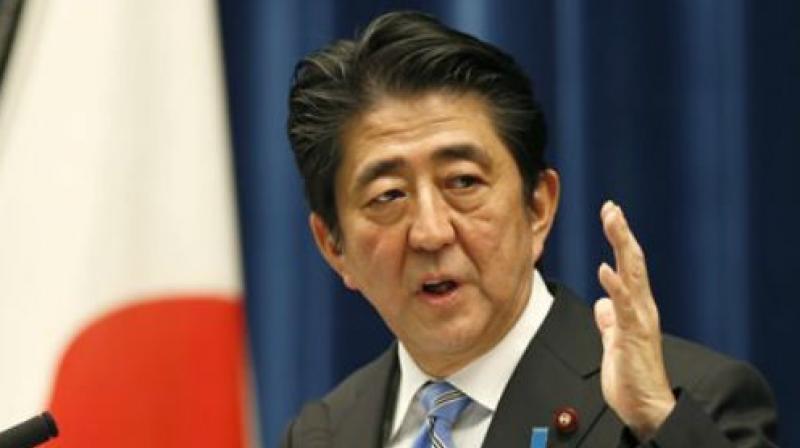Japan parliament passes controversial anti-terror bill
Prime Minister Shinzo Abe govt argues the legislation is necessary to prevent terrorism ahead of the 2020 Olympic Games.

Tokyo: Japan's lower house of parliament today passed a controversial bill to crack down on people planning terrorism and other organised crime, despite concerns it threatens civil rights.
The government of Prime Minister Shinzo Abe argues the legislation is necessary to prevent terrorism ahead of the 2020 Olympic Games.
Officials also say it is a prerequisite for implementing a UN treaty against Transnational Organized Crime which Japan signed in 2000.
The more powerful lower house controlled by Abe's coalition passed the bill, which now goes to the upper house, where the government enjoys a comfortable majority.
If enacted it would allow investigators to charge an individual or organisation which conspires to engage in terrorism or other serious crimes.
But rights groups, the national bar association and numerous academics have strongly opposed the bill, saying it could be abused to allow wiretapping of innocent citizens and punish activities protected by the constitution.
The bill was revised after earlier versions were scrapped three times over the years due to concerns about content.
The latest bill, approved by Abe's cabinet in March and sent to lawmakers, reduced the number of targeted crimes to some 270 and narrowed the kinds of groups covered to terrorist and criminal organisations.
Criticism had focused on the more than 600 types of crimes unrelated to terrorism or crime syndicates that were targeted under previous versions.
But despite the latest revision, the bill remains problematic as investigative authorities can still decide what constitutes a criminal organisation, the Japan Federation of Bar Associations said.
The general public can be targeted for conspiracy through monitoring phone and online conversations, it said.
"We can't tolerate a surveillance society which can impact civil rights," the association said in a statement before the lower house passed the measure.
Some Japanese media have likened the bill to the World War II-era "public order maintenance law" under which ordinary people were arrested for political offences, exercising labour rights and anti-war activities.

